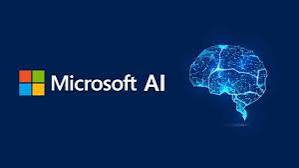
In a move to rejuvenate the personal computer industry, Microsoft has unveiled its latest innovation which is AI-integrated computers directly embedded within its Windows operating system. Announced on Monday, this advancement marks a big step in the tech great strategy to invigorate declining PC sales globally, including in emerging markets.

Microsoft's latest announcement signals a shift in the way personal computers operate. By integrating Artificial Intelligence (AI) capabilities into the Windows operating system, Microsoft aims to enhance user experience through smarter, faster, and more intuitive interactions. The new AI-powered PCs are expected to offer features such as real-time language translation, advanced threat protection, and seamless voice-activated commands, all of which promise to make computing more efficient and secure.
According to Panos Panay, Microsoft’s Chief Product Officer, the integration of AI is set to revolutionize the user experience.
"Our new AI-integrated Windows PCs are designed to bring the power of artificial intelligence directly to our users' fingertips. This innovation will not only make everyday tasks easier but also open up new possibilities for creativity and productivity," he stated during the launch event.
As internet penetration and digital literacy continue to rise, the demand for more efficient computing solutions is growing. Microsoft's AI-integrated PCs could play a crucial role in meeting this demand, offering its users access to better technology that can support education, business, and innovation.
In Uganda, sectors such as education and small and medium enterprises (SMEs) stand to benefit significantly from these advancements. AI-driven features can enhance learning experiences by providing students with personalized educational content and interactive learning tools. For SMEs, the new technology can streamline operations, improve customer interactions through intelligent virtual assistants, and support cybersecurity measures.
Microsoft's AI PCs are also expected to stimulate the global PC market, which has experienced a slump in recent years. By introducing these advanced capabilities, Microsoft aims to attract a wider range of consumers, from tech enthusiasts to everyday users who seek more efficient computing solutions. This strategy is likely to drive an increase in PC sales, contributing to the growth of the tech industry worldwide.
In Uganda, the economic implications could be substantial. The adoption of AI-integrated PCs may spur local tech industry growth, encouraging innovation and entrepreneurship. Increased demand for these advanced devices could lead to job creation in areas such as IT support, software development, and digital services, thereby contributing to the broader economic development of the country.
Despite the potential benefits, there are challenges to consider. The higher cost of AI-integrated PCs may be a barrier for some consumers in Uganda, where affordability remains a critical factor. Additionally, ensuring that users have the necessary digital skills to leverage AI features effectively will be crucial. Microsoft and local stakeholders will need to collaborate on initiatives that promote digital literacy and provide training to maximize the benefits of this technology.
Microsoft's introduction of AI-integrated PCs represents a significant leap forward in the evolution of personal computing. This development brings new opportunities to harness advanced technology for educational, business, and economic growth. As the countries continue to embrace digital transformation, the adoption of these innovative devices could play a pivotal role in shaping its future.
The success of this initiative will depend on various factors, including affordability, user education, and infrastructure development. However, with Microsoft's commitment to innovation and the prospects for AI-enhanced computing are promising.
As Microsoft propels the world into a new era of AI-driven computing, Uganda stands poised to benefit from the wave of technological advancement, potentially leading to a more connected, efficient, and prosperous future.











